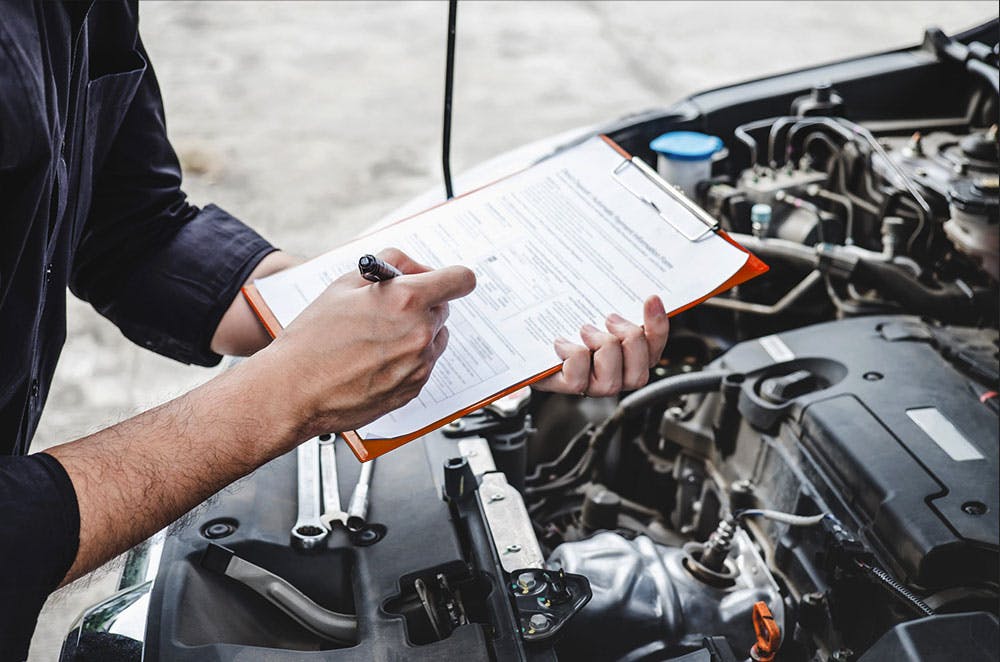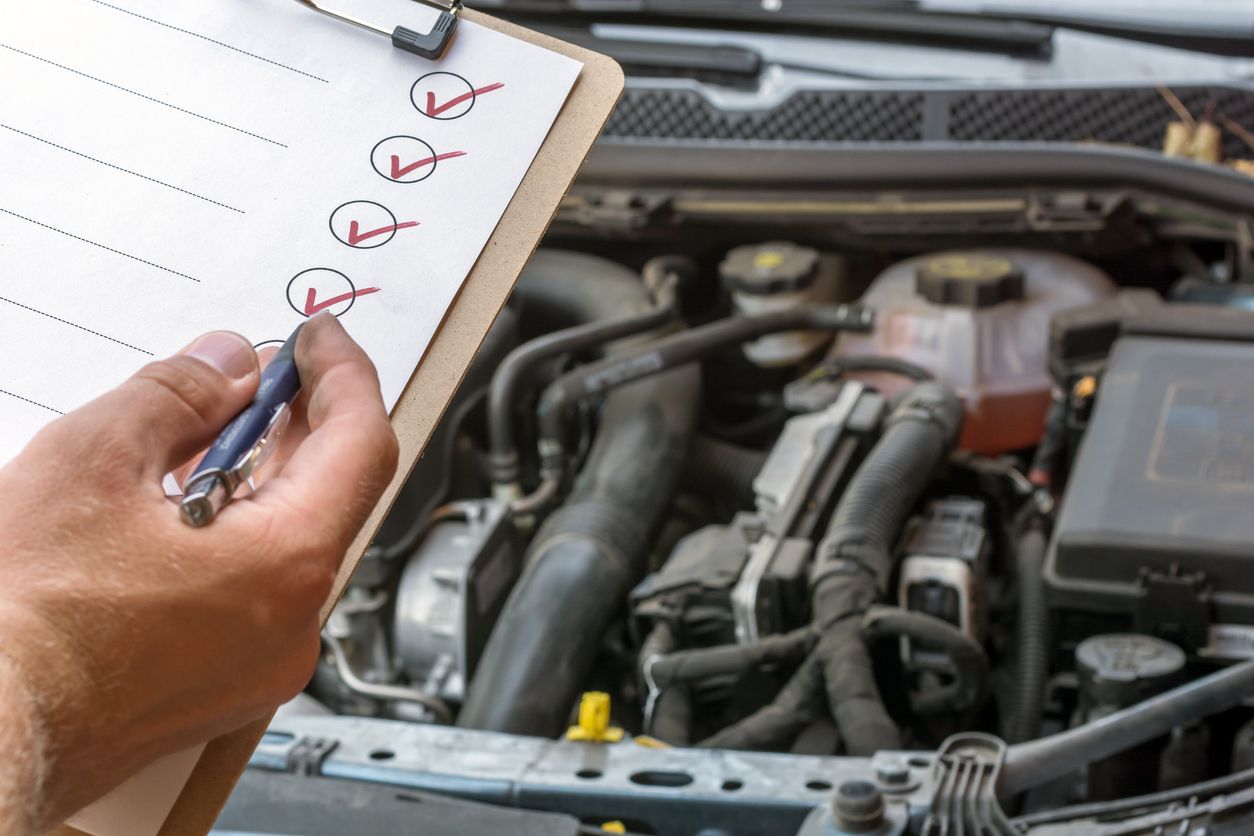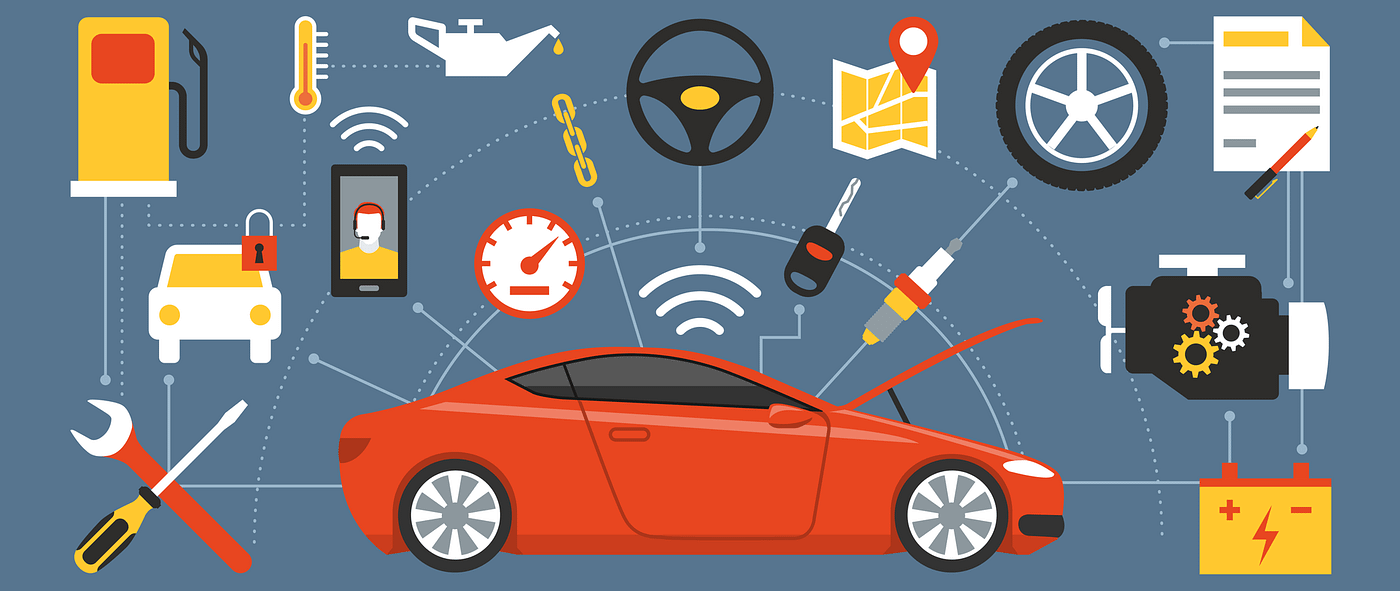All Categories
Featured
Accountable for synchronizing the rotation of the crankshaft and camshaft, the timing belt ensures the engine's shutoffs open and close at the correct times during the combustion procedure. If the timing belt fails, it can result in severe engine damages.
What Is a Timing Belt? The timing belt is a long, toothed rubber or composite belt that connects the crankshaft to the camshaft(s) in an interior burning engine. Its job is to maintain the engine's shutoffs and pistons in sync, making sure the engine runs successfully. The timing belt also regulates other important engine functions like the water pump and the power steering pump, relying on the vehicle.
![]()
Without the correct timing, the engine's valves and pistons can collide, leading to pricey and considerable damage. Changing the timing belt on routine is one of the finest methods to ensure your engine operates at its ideal and prevent costly fixings.
Why Timing Belt Substitute Issues. Avoiding Catastrophic Engine Damage: The most substantial threat of not replacing a used timing belt is engine failure. Replacing the timing belt at the suggested intervals is the ideal method to prevent such catastrophic damages, conserving you from the stress and high cost of engine fixings or replacement.
![]()
Preserving Engine Efficiency: A timing belt that remains in great problem ensures that all engine components operate in excellent harmony. If the timing belt is worn or stretched, it can cause the engine to shed power, experience rough idling, or battle to start. By replacing the timing belt on a regular basis, you can maintain your engine running at peak performance, which assists maintain optimum fuel economic situation and performance.
Preventing Unanticipated Failures: A busted timing belt can cause your engine to quit quickly, potentially leaving you stranded in the middle of a trip. By changing your timing belt promptly, you minimize the threat of abrupt malfunctions that might leave you in a unsafe or troublesome situation. Routine upkeep reduces the possibilities of experiencing these type of disruptions, helping you stay on the roadway much longer without stressing over your engine stopping working.
Affordable Maintenance: Timing belt replacement is a lot more economical than repairing or replacing an engine that's been harmed due to a timing belt failing. While the expense of changing the timing belt might differ depending upon your automobile and its location, it is even more economical than the costs connected with significant engine repair services or substitutes. Replacing your timing belt at the suggested intervals can save you a significant amount of cash over the long term by stopping damages to your engine.
When Should You Replace Your Timing Belt? The timing belt does not last permanently, and the majority of makers recommend replacing it between 60,000 and 100,000 miles. Nevertheless, the precise timing relies on your vehicle's make, version, and driving problems, so it's important to examine your proprietor's manual for particular assistance.
Indications that your timing belt might need focus include uncommon engine sounds (such as a piercing whining or ticking noise), trouble starting the engine, or a decline in engine performance. It's essential to have the timing belt evaluated by a professional auto mechanic. if you observe any of these indicators.
![]()
Final thought. The timing belt is a essential but tiny part of your engine, and normal substitute is crucial to maintaining your lorry's efficiency and preventing expensive damage. By remaining on top of timing belt upkeep, you'll ensure your engine operates effectively, stay clear of unforeseen break downs, and protect your automobile from significant repair work. Keep an eye on your automobile's advised timing belt replacement schedule, and constantly seek advice from with a relied on mechanic to maintain your engine running efficiently for several years ahead.
What Is a Timing Belt? The timing belt is a long, toothed rubber or composite belt that connects the crankshaft to the camshaft(s) in an interior burning engine. Its job is to maintain the engine's shutoffs and pistons in sync, making sure the engine runs successfully. The timing belt also regulates other important engine functions like the water pump and the power steering pump, relying on the vehicle.

Without the correct timing, the engine's valves and pistons can collide, leading to pricey and considerable damage. Changing the timing belt on routine is one of the finest methods to ensure your engine operates at its ideal and prevent costly fixings.
Why Timing Belt Substitute Issues. Avoiding Catastrophic Engine Damage: The most substantial threat of not replacing a used timing belt is engine failure. Replacing the timing belt at the suggested intervals is the ideal method to prevent such catastrophic damages, conserving you from the stress and high cost of engine fixings or replacement.

Preserving Engine Efficiency: A timing belt that remains in great problem ensures that all engine components operate in excellent harmony. If the timing belt is worn or stretched, it can cause the engine to shed power, experience rough idling, or battle to start. By replacing the timing belt on a regular basis, you can maintain your engine running at peak performance, which assists maintain optimum fuel economic situation and performance.
Preventing Unanticipated Failures: A busted timing belt can cause your engine to quit quickly, potentially leaving you stranded in the middle of a trip. By changing your timing belt promptly, you minimize the threat of abrupt malfunctions that might leave you in a unsafe or troublesome situation. Routine upkeep reduces the possibilities of experiencing these type of disruptions, helping you stay on the roadway much longer without stressing over your engine stopping working.
Affordable Maintenance: Timing belt replacement is a lot more economical than repairing or replacing an engine that's been harmed due to a timing belt failing. While the expense of changing the timing belt might differ depending upon your automobile and its location, it is even more economical than the costs connected with significant engine repair services or substitutes. Replacing your timing belt at the suggested intervals can save you a significant amount of cash over the long term by stopping damages to your engine.
When Should You Replace Your Timing Belt? The timing belt does not last permanently, and the majority of makers recommend replacing it between 60,000 and 100,000 miles. Nevertheless, the precise timing relies on your vehicle's make, version, and driving problems, so it's important to examine your proprietor's manual for particular assistance.
Indications that your timing belt might need focus include uncommon engine sounds (such as a piercing whining or ticking noise), trouble starting the engine, or a decline in engine performance. It's essential to have the timing belt evaluated by a professional auto mechanic. if you observe any of these indicators.

Final thought. The timing belt is a essential but tiny part of your engine, and normal substitute is crucial to maintaining your lorry's efficiency and preventing expensive damage. By remaining on top of timing belt upkeep, you'll ensure your engine operates effectively, stay clear of unforeseen break downs, and protect your automobile from significant repair work. Keep an eye on your automobile's advised timing belt replacement schedule, and constantly seek advice from with a relied on mechanic to maintain your engine running efficiently for several years ahead.
Latest Posts
Find Brake Repair & More: Full Services Guide from Montclare Auto Repair
Published en
1 min read
Reasons Regular Car Maintenance at Montclare Auto Repair Reduces Costs
Published en
1 min read
Learn About Outstanding Car Repair Services offered by Montclare Auto Repair – Drive with Confidence
Published en
1 min read
More
Latest Posts
Find Brake Repair & More: Full Services Guide from Montclare Auto Repair
Published May 27, 25
1 min read
Reasons Regular Car Maintenance at Montclare Auto Repair Reduces Costs
Published May 26, 25
1 min read
Learn About Outstanding Car Repair Services offered by Montclare Auto Repair – Drive with Confidence
Published May 26, 25
1 min read